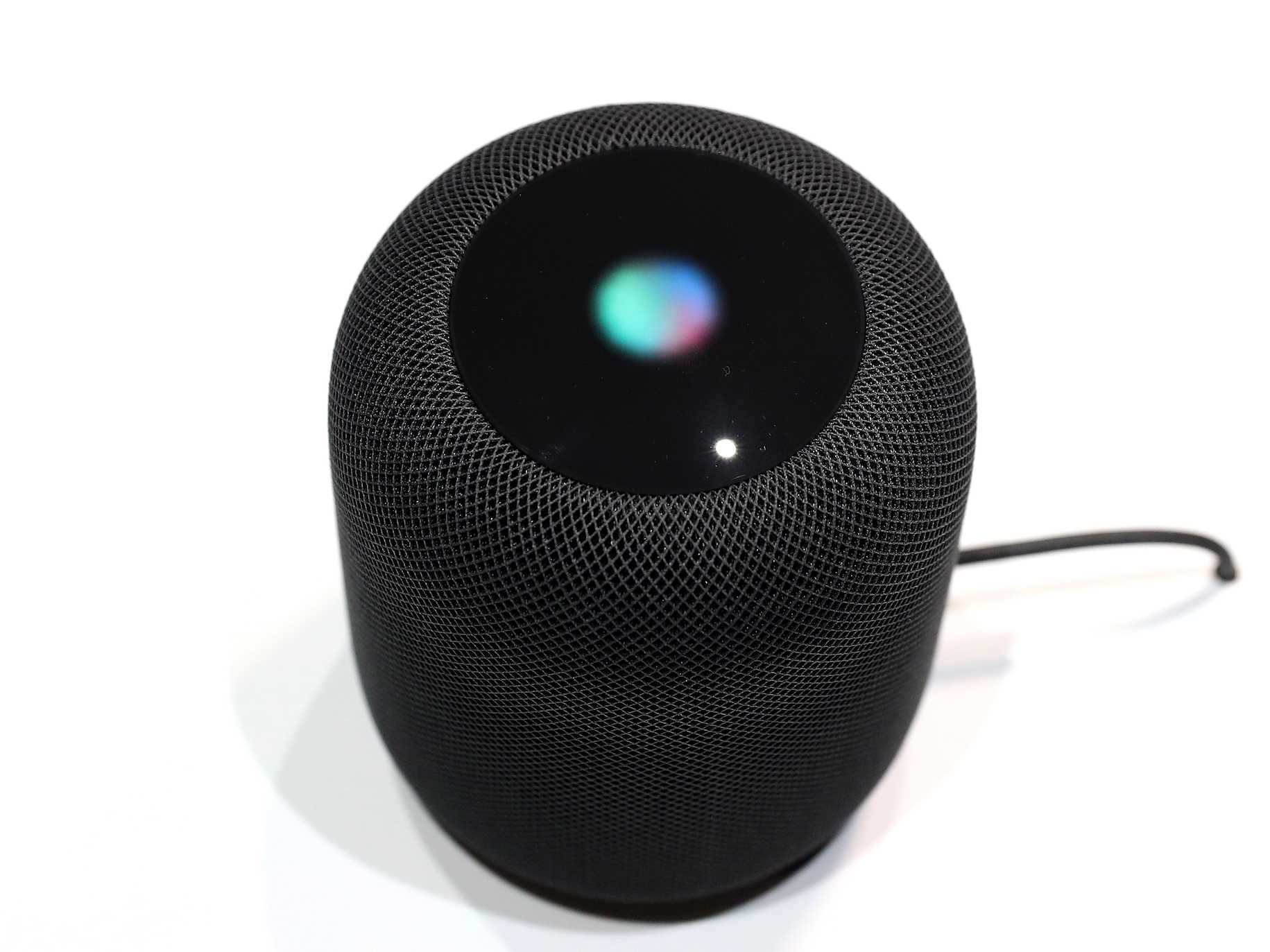Apple’s first foray into smart speakers is officially here.
The HomePod, which costs $350, became widely available last Friday. It offers high-end audio combined with Apple’s smart assistant, Siri, all packed inside a cylindrical body.
In fact, it bears a quite a few similarities to another smart speaker on the market: the $100 Amazon Echo.
The Echo has been hugely popular with consumers over the past few years. Amazon doesn’t disclose device sales, but it pegged holiday sales of Alexa-enabled devices in the “tens of millions.”
And the number of people buying Echo devices has skyrocketed over the past year: Amazon shipped 5 million devices in the third quarter of 2017, compared with 900,000 during the same period the year before, according to data from Strategy Analytics.
So with all the popularity of the Echo - which is now in its second generation - why should you consider Apple's HomePod? There are two main reasons.
1. HomePod is the best way to listen to Apple Music, bar none.
Apple Music doesn't yet have the same global dominance as the music streaming service Spotify. As of September, Apple Music had 30 million subscribers to Spotify's 60 million.
Still, 30 million users is nothing to scoff at, and many of them are most likely looking for a way to get the most out of their music.
Enter the HomePod.
While the version of Siri built into the HomePod is subpar in a lot of ways, where it shines is with Apple Music. You can say things like, "Hey, Siri, I don't like this song," and the device will adjust the music accordingly and remember for the future.
It also learns what you like over time, so if you say, "Hey, Siri, play some party music," it will present you a playlist full of the types of artists and genres it knows you like.
While these capabilities may not be must-have features, they're certainly enhancements to any listening experience. Plus, everything syncs between the Apple Music you're enjoying on the HomePod and the version on your phone, so your preferences will carry over when you leave the house.

2. HomePod sounds incredible.
I got a demo of the HomePod's comparison with other leading smart speakers on the market, and the Echo has one similar advantage when it comes to the sound: Since the speaker wraps around the entire device, it sounds the same no matter where you're standing, much like the HomePod.
The Echo and the HomePod also both have a soft mesh exterior and touch controls on top. But the insides of the devices are very different, and that's what makes the HomePod's sound significantly better.

The HomePod has seven tweeters spaced evenly around the circumference of the device, so it sounds great no matter where you're standing. The Echo, meanwhile, has one tweeter in the center of the device.
Having more tweeters, which are responsible for producing the highest audio frequencies, typically creates a better, more nuanced sound.
The HomePod also has a high-excursion subwoofer, meaning it can produce deep bass. The Echo has a subwoofer too, but in the demo I got, its bass didn't sound as deep and rich as the HomePod's.
Plus, the HomePod has room-sensing technology that allows it to tune the music based on its surroundings, bouncing ambient sounds in your music off nearby walls. And while it's not available yet, the HomePod will eventually be capable of stereo pairing, which means you can have two HomePods sync to create a fuller, more immersive sound.
If you're looking for a smart speaker that can do internet searches for you, handle complex requests, manage your email and calendar, place calls, and essentially act as your phone while you're at home, the HomePod is not the device for you. There are several major shortcomings with the "smart" aspects of the HomePod that are likely to be a turnoff for anyone looking for an intelligent assistant.
But if you're looking for a great way to listen to music, the HomePod is well worth considering.

